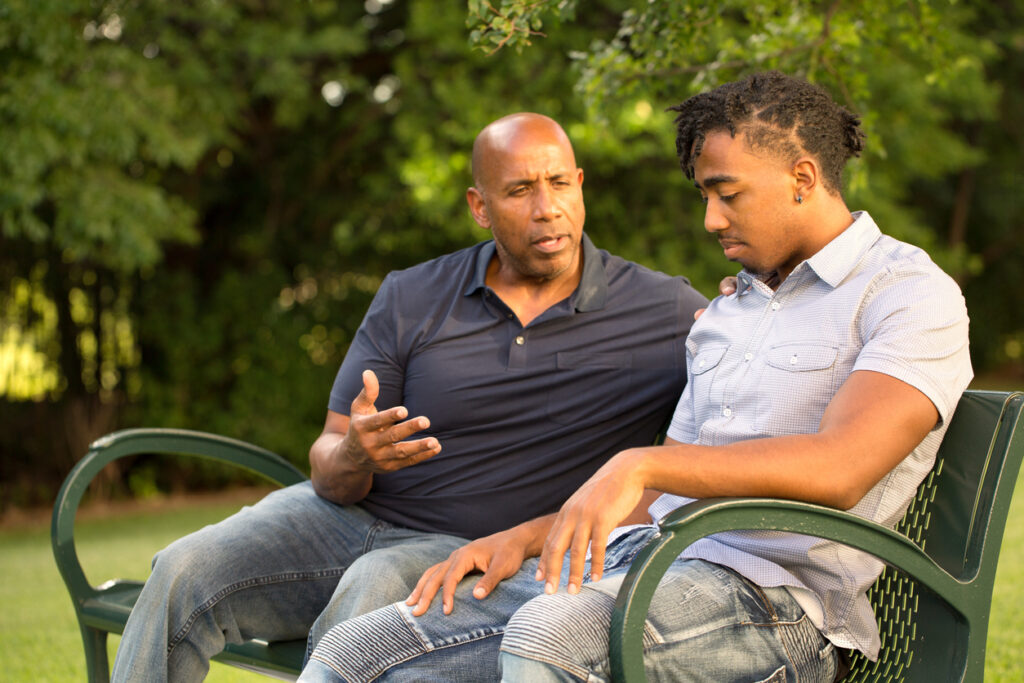Stop wondering why they don’t call—these common mistakes could be ruining your relationship forever.

You thought you’d always be close, but now your adult child barely talks to you—or worse, completely ignores you. The silence can feel brutal, especially when you remember the days when you were their entire world. It’s natural to feel confused, even devastated, by the distance that’s grown between you. You might be lying awake at night, mentally retracing every conversation, trying to figure out where things took a wrong turn. It’s a lonely place to be—filled with hurt, guilt, and the nagging question of what you did wrong.
The truth is, emotional distance doesn’t usually come out of nowhere. Sometimes, it’s the result of small, repeated behaviors that quietly erode trust and connection over time. You may not even be aware that your words or actions are affecting them deeply. If your texts go unanswered or phone calls never come, it’s time to take an honest look inward. These subtle mistakes could be creating a wall between you and your adult child—and if left unaddressed, they might damage your relationship beyond repair.
1. You constantly offer advice they didn’t ask for.

You’ve spent years guiding and protecting your child, so it makes sense that offering advice feels like second nature. But what used to be helpful can now feel invasive. When your adult child confides in you and your immediate response is a list of solutions, it can seem like you doubt their ability to navigate life on their own. What feels like love and care to you might land as criticism or control to them—and that disconnect can quietly chip away at your bond, according to Susan Moeller at AARP.
Try focusing on being present rather than being the fixer. Instead of giving your two cents, ask if they want advice or just someone to listen. Often, the most meaningful thing you can offer is your full attention and emotional support. Let them lead the conversation and show that you trust their judgment. When they feel safe and heard, they’re more likely to come to you willingly—because they know they won’t be met with unsolicited direction.
2. You make everything about you.

It’s human nature to relate others’ stories back to our own, but when every conversation pivots back to your life, struggles, or opinions, it can make your child feel invisible. You may not realize it, but constantly shifting the spotlight to yourself can signal that their experiences aren’t as important—or that they have to compete for your attention, as mentioned by Sheri McGregor at Rejected Parents. Over time, they might stop opening up altogether if they feel like they’re just a supporting character in your narrative.
To nurture a deeper connection, show a genuine interest in what they’re going through. Ask thoughtful questions about their career, relationships, goals, and worries. Listen without steering the conversation in your direction. When your adult child feels seen and validated, it strengthens the bond you share. Being present for their story—not just telling your own—can be one of the most loving gifts you give them.
3. You guilt-trip them about how little they call.

Phrases like “You never have time for me anymore” or “I guess I don’t matter these days” might be born from loneliness, but they’re laced with emotional manipulation. When your adult child senses guilt wrapped in your words, it creates pressure instead of desire, says James Lehman at Empowering Parents. They may begin to associate communication with tension and dread rather than warmth and connection—so they withdraw further to avoid that discomfort.
If you want more contact, create an environment they want to return to. Be enthusiastic when they do reach out and make conversations feel light, supportive, and enjoyable. Celebrate the times you connect rather than focusing on the gaps in between. When they feel emotionally safe and welcomed, they’ll naturally want to share more of their life with you—not because they have to, but because they want to.
4. You bring up their past mistakes every chance you get.

We all remember moments when our children made poor decisions—but constantly reminding them of those missteps is not only unhelpful, it’s deeply damaging. Bringing up past failures creates shame and drives a wedge between you. It tells your adult child that no matter how much they grow or improve, you’re still keeping score and won’t let them move on. That kind of judgmental undertone quickly leads to emotional distancing.
Instead, try shifting your focus toward their current accomplishments, strengths, and growth. Offer praise when they show resilience, make responsible choices, or chase their goals. When they feel that you see them for who they are now—not who they used to be—they’ll feel encouraged rather than condemned. That shift in perspective can reopen emotional doors that might’ve felt permanently shut.
5. You criticize their lifestyle choices.

It’s hard to watch your child make decisions that you wouldn’t. Maybe you worry about their career path, the person they’re dating, or how they manage money. But pointing out what you disapprove of—especially when it’s unsolicited—can feel like a personal attack. Over time, this criticism can make them feel that your love is conditional or that they’ll never quite measure up to your expectations.
A healthier path is to practice acceptance, even when you don’t fully understand or agree with their choices. Let your adult child know that you respect their autonomy and support their journey, even if it looks different from yours. When they feel accepted for who they are, they’re more likely to open up to you, rather than shut you out. Your relationship will thrive when it’s built on respect, not constant correction.
6. You try to control how they spend holidays.

Holidays often carry emotional weight and long-standing traditions, which can make it hard when your adult child wants to do things differently. Insisting they always spend holidays with you—or showing disappointment when they can’t—adds stress and guilt to a time that’s supposed to be joyful. If every holiday turns into a tug-of-war, they may start dreading the season altogether.
Flexibility is key to keeping your bond intact. Be open to celebrating on alternative days or trying new traditions that fit both your lives. Focus on quality time rather than clinging to a specific calendar date. When your adult child feels that you honor their needs and respect their time, they’ll be more willing to make room for you in their lives—especially during busy or emotionally charged seasons.
7. You act hurt when they set boundaries.

Boundaries can feel like rejection, especially when you’re used to being closely involved. But when your adult child sets limits—whether it’s about how often you talk or what topics are off-limits—it’s usually about protecting their own mental and emotional health, not punishing you. Responding with guilt, frustration, or emotional withdrawal only reinforces the need for even stricter boundaries.
Respecting their limits shows maturity, trust, and self-awareness. Let them know that you understand and appreciate their need for space, even if it’s difficult. When you handle boundaries with grace, you create an emotionally safe space where mutual respect can flourish. That safety often leads to more openness and closeness in the long run, not less.
8. You expect them to handle your emotional needs.

It’s completely normal to seek comfort and connection, but leaning too heavily on your adult child for emotional support can overwhelm the relationship. When you constantly share your fears, stress, or sadness without considering their capacity, it can make them feel responsible for your well-being—something they never signed up for. That emotional burden can become too much, leading them to pull away to protect their own mental space.
Build a broader support network that includes friends, therapy, hobbies, or spiritual practices so your child isn’t your only outlet. This lightens the emotional load and allows your relationship to thrive on mutual support, not dependency. When interactions feel emotionally balanced, your adult child is more likely to enjoy spending time with you, rather than avoiding conversations out of emotional exhaustion.
9. You’re overly critical of their parenting.

You may have decades of parenting wisdom, but constantly pointing out what your child is doing wrong with their kids—especially in front of others—can deeply wound their confidence. Criticism, even if well-meaning, feels like an attack on their identity as a parent. It also erodes trust, making them less likely to let you into their world.
Instead of critiquing, observe and affirm what they’re doing right. Compliment their patience, their creativity, or how well they connect with their children. Offer guidance only when asked, and even then, tread lightly. When they feel that you believe in them, it builds pride and gratitude instead of tension and resentment.
10. You keep score of everything you’ve done for them.

Bringing up all your past sacrifices or financial support can feel like you’re using guilt as currency. While your love and dedication deserve recognition, reminding your child of every favor or hardship creates an emotional debt they can never fully repay. It turns your relationship into a ledger instead of a connection based on love and trust.
Let go of the need to be validated through repayment or acknowledgment. Trust that your efforts mattered and that your child carries that love within them, even if they don’t say it aloud. When you show unconditional generosity, you create space for genuine gratitude to grow—free from obligation or resentment.
11. You don’t respect their partner.

Few things will damage your relationship with your adult child faster than disrespecting their significant other. Even subtle comments, passive-aggressive behavior, or lack of interest in their partner’s life can put your child in a painful position. If they feel forced to choose between you and the person they love, they’ll likely protect their partner—and distance themselves from you.
Focus on finding common ground and showing kindness. Ask questions, get to know who their partner is, and find ways to connect without judgment. You don’t have to agree with every aspect of their relationship to treat them with dignity. When you show acceptance, you’re also reinforcing your love and respect for your child.
12. You dismiss their feelings.

Telling your adult child that they’re overreacting, too sensitive, or “making a big deal out of nothing” is deeply invalidating. These phrases can cut off vulnerability and make them feel unsafe sharing their emotions with you. Over time, they may stop opening up altogether, choosing silence over the risk of being minimized or misunderstood.
Instead, practice active listening and empathy. Even if you don’t fully understand why they feel the way they do, let them know their emotions are valid. A simple acknowledgment—“That sounds really hard” or “I can see why you’d feel that way”—goes a long way. When your child knows they can be real with you, trust begins to rebuild.
13. You act like they owe you their time.

While it’s natural to miss your child and want to be part of their life, treating their time as something you’re entitled to can drive them away. Making them feel guilty for being busy, having a life of their own, or not responding immediately makes your relationship feel like a burden. Over time, that pressure can turn into avoidance.
Instead, try to focus on the quality of your time together, not the quantity. Express appreciation for the moments they do share with you and make those experiences warm, engaging, and enjoyable. Let your love be an invitation, not a demand. When your adult child feels free rather than obligated, the relationship has space to grow in a healthy, lasting way.
